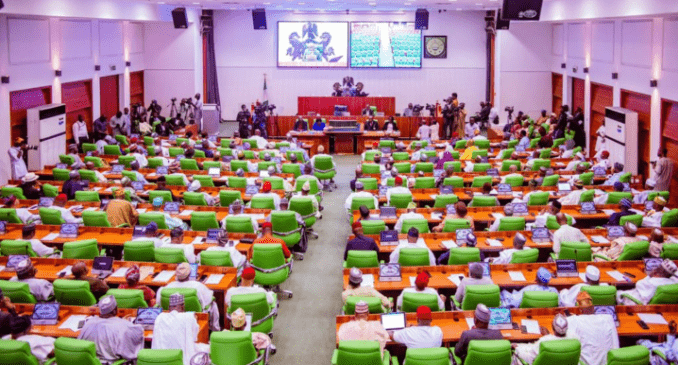
The House of Representatives Committee on Nutrition and Food Security has commenced an investigative hearing into the alleged misuse of agricultural interventions and funding.
These funds were reportedly disbursed by federal government departments, agencies, and schemes operating outside the Federal Ministry of Agriculture and Food Security.
Speaking at the hearing held at the National Assembly on Tuesday, the Chairman of the Committee, Hon. Chike Okafor, Ph.D., emphasized the gravity of the task before the lawmakers.
He stated that the Committee’s mandate is not to ‘witch-hunt’, but to uncover systemic failures, ensure accountability, and guarantee the judicious use of public funds aimed at advancing Nigeria’s agricultural development and combating food insecurity.
According to Hon. Okafor, despite significant financial interventions over the years, Nigeria continues to face worsening food scarcity, rising food prices, and deepening malnutrition.
“If these funds had been judiciously spent, we would not be facing the current crisis where millions of Nigerians struggle to afford basic meals.” He noted.
The Committee is acting on a resolution of the House following a motion titled, “Alleged Mismanagement of Government Agricultural Initiatives and Funding by Departments, Agencies and Government Programs Outside the Federal Ministry of Agriculture and Food Security.”
The investigation covers several funding and intervention schemes, including: The Central Bank of Nigeria’s Anchor Borrowers Program (ABP) which reportedly disbursed ₦1.12 trillion to over 4.6 million farmers through 563 anchors, the Nigeria Incentive-Based Risk Sharing System for Agricultural Lending (NIRSAL), which allegedly released over ₦215 billion to support agribusinesses.
Also the Bank of Industry, which funded 22,120 smallholder farmers with ₦3 billion under its Agriculture Value Chain Financing programme and extended ₦59.4 billion in loans to 49 agro and food processing businesses, the Bank of Agriculture, which received ₦5 billion in 2023 to support livestock farmers across the country, the National Agricultural Development Fund, which unveiled a ₦1.6 billion Recovery Fund in March 2024 to tackle the ginger blight epidemic.
The Committee has requested that each agency provide detailed documentation, including enabling legislations, fund disbursement records, donor partnership details, identities of anchors and beneficiaries, terms and conditions of the loans, recovery plans, as well as reports on project performance and impact on food security.
“We expect full cooperation, honest disclosures, and actionable recommendations.
“Accountability is not an option; it is a necessity. The Nigerian people deserve to know how their resources are being used.” Hon. Okafor stated.
The hearing has invited a wide range of stakeholders and agencies, including the Central Bank of Nigeria, Bank of Industry, NIRSAL Microfinance Bank, National Agricultural Seed Council, Nigeria Agricultural Quarantine Service, and the newly led Bank of Agriculture, among others.
Hon. Okafor further reiterated that the Committee, in line with its constitutional oversight functions as stipulated under Order 20B, No. 98(2)(a-1) of the House Standing Orders, remains committed to promoting transparency and legislative support for food security and nutrition, key components of President Bola Ahmed Tinubu’s Renewed Hope Agenda.
He called on civil society organizations and the media to continue playing their critical role in ensuring transparency, and pledged the Committee’s commitment to upholding public trust.
“Let us work together to find the gaps, correct inefficiencies, and take necessary action where infractions are found,” he concluded.










